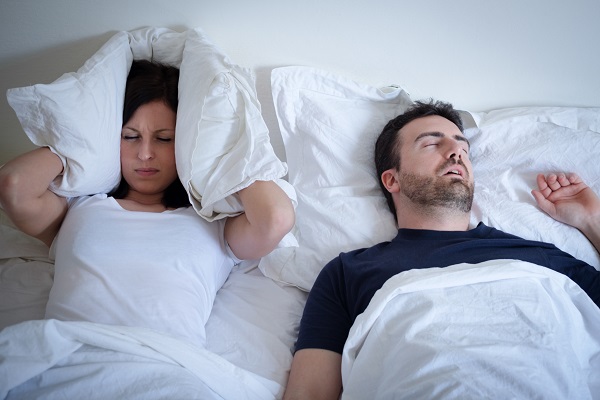Comparing Dental Oral Appliance Treatments for Sleep Apnea

Dental oral appliances, also called mandibular advancement devices, can often treat sleep apnea and relieve symptoms. Understanding more about how dental oral appliances work for sleep apnea treatment and how they compare to other treatment solutions can help you decide if treatment is right for you.
A review and comparison of oral appliances for sleep apnea
The days of relying upon your CPAP machine to treat sleep apnea are over. There are now several ways to treat sleep apnea effectively, including dental oral appliances. This review explains sleep apnea oral appliances in greater depth and provides a comparison between them and CPAP machines.
About sleep apnea oral appliances
Obstructive sleep apnea (OSA) is a condition that causes the person to stop breathing while asleep, resulting in them frequently waking up and not getting an adequate amount of oxygen. Sleep apnea oral appliances — most notably, mandibular advancement devices — are worn by patients with OSA to stay asleep. They work by keeping the tongue and jaw in the proper position to keep the airway in the back of the throat open. This relieves symptoms and allows for a better night's rest.
Oral appliances vs. CPAP machines
CPAP machines are common for treating obstructive sleep apnea and involve providing oxygen to keep the airway open throughout the night. However, they require a mask, and many consider them to be less comfortable than oral appliances. An oral appliance is often just as effective in treating OSA, and it is considered by many to be easier to use and travel with.
How to choose the best oral appliance for sleep apnea
Oral appliances and CPAP machines are both effective and have their pros and cons. CPAP machines are effective for most with sleep apnea and relatively affordable. However, for some people, they are awkward and uncomfortable. Mandibular advancement devices, the most common types of dental oral appliances, are easier to wear, effective and affordable. In some instances, oral appliances may not be quite as effective as a CPAP machine, however.
When to consider sleep apnea treatment
If the symptoms of sleep apnea become chronic or severe, then the patient should seek treatment. The most notable symptoms of sleep apnea include:
- An inability to stay asleep
- Morning headaches
- Lack of energy and focus
- Snoring, tossing and turning
Sleep apnea may contribute to cardiovascular issues later in life if not treated properly. Some people find relief through lifestyle changes, although most require either a CPAP machine or an oral appliance for obstructive sleep apnea. The best way to determine if a treatment is appropriate is to arrange a visit with a dentist who offers sleep apnea treatment.
Discuss sleep apnea treatment with a licensed dentist
No one should have to deal with the symptoms of sleep apnea each night. If you have not found an effective solution for your sleep apnea, contact our dental team and arrange a visit, during which we can discuss oral appliances and put together an effective treatment plan.
Are you considering sleep apnea treatment in the Yucca Valley area? Get more information at https://www.jameslakedds.com.
Check out what others are saying about our dental services on Yelp: Sleep Apnea in Yucca Valley, CA.
Related Posts
There are several treatment options available for patients with sleep apnea. For some, CPAP machines may be an ideal solution, although more patients are using dental appliances in place of their CPAP machines. The following is a review of available treatment options for sleep apnea and how to choose the one that works best. Two common…
Choosing a kid friendly dentist is critical for your child’s dental health. The right dentist understands a young patient’s needs and their development. As a parent, you need to be aware of those big moments in a child’s oral wellness. This will help you keep on top of good oral hygiene at every stage of…
If you are looking to replace several teeth due to decay, infections, disease, injury, or other loss, then you may be looking for your options for a dental implant. The good news is that these procedures have been done frequently, and therefore, a lot of knowledge is known about the process and what to expect.…
While orthodontics is a dental specialty, many general dentists offer orthodontic treatment alongside traditional dental services. This is due to the fact that the appearance and health of one's teeth are connected. A general dentist who offers orthodontic services will have the necessary training and education to address minor to moderate orthodontic treatment, allowing patients…
